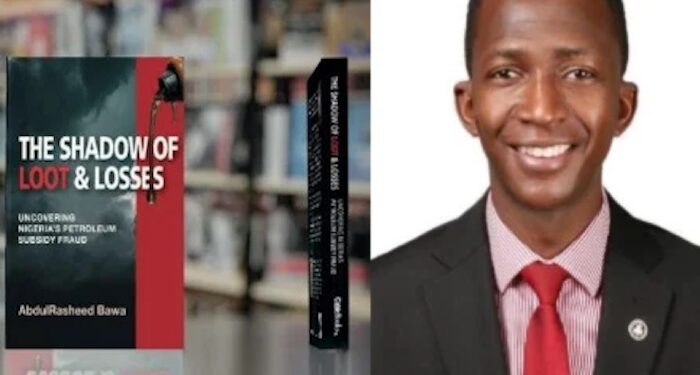LAGOS, Nigeria – Former Chairman of the Economic and Financial Crimes Commission (EFCC), Abdulrasheed Bawa, has exposed shocking details of Nigeria’s multitrillion-naira fuel subsidy scandal in his new book, “The Shadow of Loot & Losses: Uncovering Nigeria’s Petroleum Subsidy Fraud.”
Published by CableBooks, the book offers the most detailed insider account to date of how corrupt officials and complicit private fuel importers siphoned public funds for over a decade—under the guise of subsidy payments.
Drawing on his direct role in investigating the infamous 2012 subsidy fraud, Bawa reveals how criminal networks used strategies such as ghost importing, document forgery, and double claims to defraud the nation. These schemes, enabled by weak regulatory oversight and high-level collusion, bled Nigeria of trillions of naira before the subsidy regime was ended by President Bola Tinubu in 2023.
“This is not just a record of corruption—it’s a call for urgent reforms in Nigeria’s public finance management,” Bawa asserts.
According to a statement from the publisher, Bawa chronicles his experience leading the EFCC’s special investigative unit and provides forensic insight into how billions were recovered and certain perpetrators prosecuted. The book also highlights how the failure of checks and balances allowed the fraud to persist for years.
The fraudulent methods exposed include:
-
Ghost importing & over-invoicing – claiming fuel shipments that never arrived.
-
Manipulated shipping documents – falsifying prices and bills of lading.
-
Double claims – receiving multiple payouts for a single shipment.
-
Diversion and smuggling – rerouting subsidized fuel to black markets or neighboring countries for illicit profit.
The book is both a historical document and a reform blueprint. Bawa, who served as EFCC chairman from 2021 to 2023, offers unparalleled insight into the institutional weaknesses that enabled Nigeria’s most extensive financial scam.
Described as “essential reading” for policymakers, journalists, and civic watchdogs, the book aims to awaken national consciousness and inspire accountability in the oil and gas sector, long viewed as a nexus of entrenched corruption.


